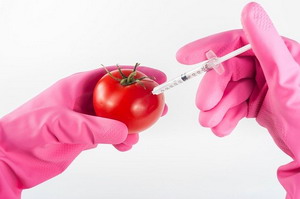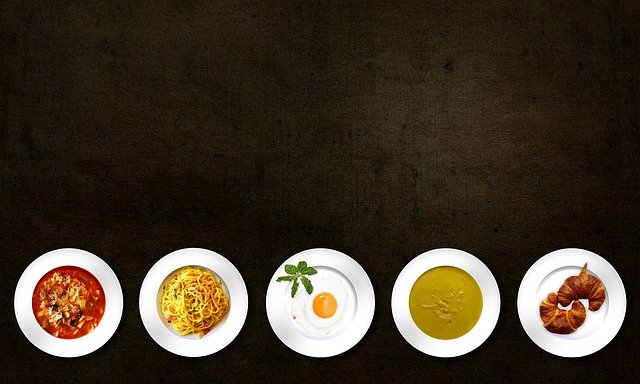What is a nutritious diet? No matter what eating style you prefer, everyone at least agrees that nutritious food is the way to go. But the word nutritious is kind of vague. It kind of says that you want food that has stuff in it that is good for you, that will support your body. Right there is the essential glitch in the concept of nutritious food – the phrase “your body”. Whose body is that exactly? Everyone’s body is different. The nutritional needs of a 3-month-old baby are very different than those of a high school athlete. Boys are different from girls, kids are different from the elderly, you are different from me. The big world ignores individual differences and looks for what is the common need for most everybody. Okay, let’s start there.
Nutritious food needs to contain enough raw calories to keep a person alive. This is not much of a problem in this country, but it is a major issue in many third world countries. Food is made of just a few things – water, proteins, carbohydrates, fats, fiber, and vital elements like vitamins. In the right forms and proportions, these are the things that support life for humans.

But food today contains lots of other stuff that does not support life. Some non-supportive additives are incorporated to prevent spoilage, change the smell, texture, color, and flavor, or to stimulate addiction, assist in packaging, shipping, and marketing of the food. Many other non-supportive elements are not added intentionally. For example antibiotics, microplastics, pesticides, herbicides, toxic chemicals, bacteria, mold, fungi, insects, industrial pollutants, and so on. None of these non-supportive elements could be considered nutritious.
There is another class of non-supportive elements in foods to consider. These are things that look like nutritious food elements, but are not healthful, such as trans fats, oxidized oils, sugar, damaged proteins, natural plant poisons, and the like. Additionally, some people will find certain foods to be toxic to them specifically because of personal immune system sensitivities to various foods.

So, is a food nutritious if it has stuff we can use and do need if it also has a bunch of stuff that is bad for us? This is a major question for our health. I would love to have a zero-tolerance policy for non-supportive elements and poisons in my food supply, but if I did that I would quickly die from starvation. I can’t even grow my own food without getting some of these poisons in my food simply because of the air pollution around my garden. So a zero-tolerance policy is not possible. If you are a depressive fatalist, this becomes a good excuse to live on Sees candy and Dorito’s. But then, if you were such a person, you would not be reading a health newsletter.
This is where we get to the punchline of the newsletter. Just how much toxic crap are we willing to shove down our throats in our attempts to get our nutritional needs met? Unfortunately, the choice really comes down to comparing the negative impact on us today from eating the poisons versus the amount of time, energy, and effort involved in avoiding as many of these poisons as possible. A few of us have experienced enough negative impact in the past that a lot of preventative effort in the present is worthwhile. But most people are not even aware of the extent of the negative impact these foods that carry poisons have on our health.

I have heard several people in the last few days tell me that they are going on a cleansing diet, like the “whole 30” program, for a month. I even hear how much better they felt last year when they did this. I ask them if the fact they felt better might be a clue about how their regular diet is affecting them. The answer comes down to how inconvenient eating that way is on a consistent basis. The trauma to the wrists from having to cut vegetables and all the time needed to do this was just overwhelming. The even greater trauma of avoiding their favorite toxic food-like substances was left unsaid. I guess they figured I would not be a sympathetic audience for how hard it is to not eat poisons since they taste so good. But they were able to express how convenient pre-packaged industrial food is. My comment was about how I wrote an article a while back on the subject of death by convenience.
So this is where the rubber meets the road. The amount of hardcore data there is on the toxic effects of all the non-food additives found in our commercial food supply is not even slightly controversial in the scientific world. But real people don’t live in the world of facts and studies and biochemistry. They live in the world of marketing and mental manipulation by big business. They will fall for the marketing campaigns by soda companies convincing them that obesity and diabetes has nothing to do with sugar consumption, but lack of exercise instead. News flash, that is a complete lie. But companies know that the bigger the lie, the more the people will believe it. There is nothing nutritious in soda, period. There is nothing nutritious in bags of chips or packages of cookies or even cartons of kiddie fruit drinks (with 7% real fruit juice).

Unless you have a personal chef doing your food prep, convenient food is not nutritious. Eating nutritious food requires that someone is preparing fresh food from scratch mere hours before you eat it. It only takes a day or two for freshly picked fruits and vegetables to lose the largest percentage of their vital nutrients. The basic calories are still there, but the essential nutrients are lost to oxidation. This has been known for many decades and was the original reason for the development of vitamins: to make up for the vital nutrient losses that occur just getting foods from the farm to us. So we accept that we are not going to get all we need from the foods we eat. We have to use some level of supplementation these days to get all our needs met. The real question now revolves around the so-called macronutrients and the toxins. How much protein do you need? How much simple carbohydrate, complex carbohydrate, and fiber do you need? How much fat and what kind of fat do you need? The answers to these questions vary greatly between people. Weight lifters need a lot more protein than desk jockeys. Some people do well with lots of complex carbohydrates while others do better with very little. Probably no one needs simple carbohydrates (meaning sugar), but that is what we love the most because it is designed to put weight on us. While this is not helpful today, historically extra weight greatly aided our survival as constant food was not available. Sugar hits the reward centers of our brain telling us we are a winner in the game of life (actually the same spot cocaine hits). Everyone needs fiber – generally much more than we get daily. Monosaturated fats seem to be good for everyone: fats like olive oil and avocado oil. Some saturated fats are good for us while others are not. Polyunsaturated fats are needed in tiny amounts – like a teaspoon a day, but these are super susceptible to oxidation by heat and air which makes them toxic.

So for macronutrients, you have to find what works best for your metabolism. Use good quality proteins, monosaturated fats, some complex carbohydrates, and fiber. Basically this means fresh real food. As soon as you get away from fresh and real, you get into the world of food chemicals and all the nasty stuff we mentioned earlier. Much of this stuff will impact you to a greater or lesser degree depending upon how well your personal detoxification pathways in your liver are working. It is also dependent upon the strength of your gut lining and the functionality of the immune system in your digestive system. All these systems degrade with age, so the diet you could eat in your 20’s is typically much different from what you can eat in your 50’s.

As much as I would like to just give you the perfect diet to eat, reality tells us we are all different. More importantly, we love convenience and the taste of the industrial food we have been raised with. Our ability to survive on it decreases with age, and our willingness to deal with the consequences decreases as these get worse with each passing year. What is the message here? Listen to your body. Pay attention to how your diet makes you feel. Try avoiding questionable foods for three weeks and see if you feel enough better without them to let them go. If they make no difference, then wait till it does to deal with it. This is a better approach than denying what food is doing to you until it is too late.
Take care,
David
